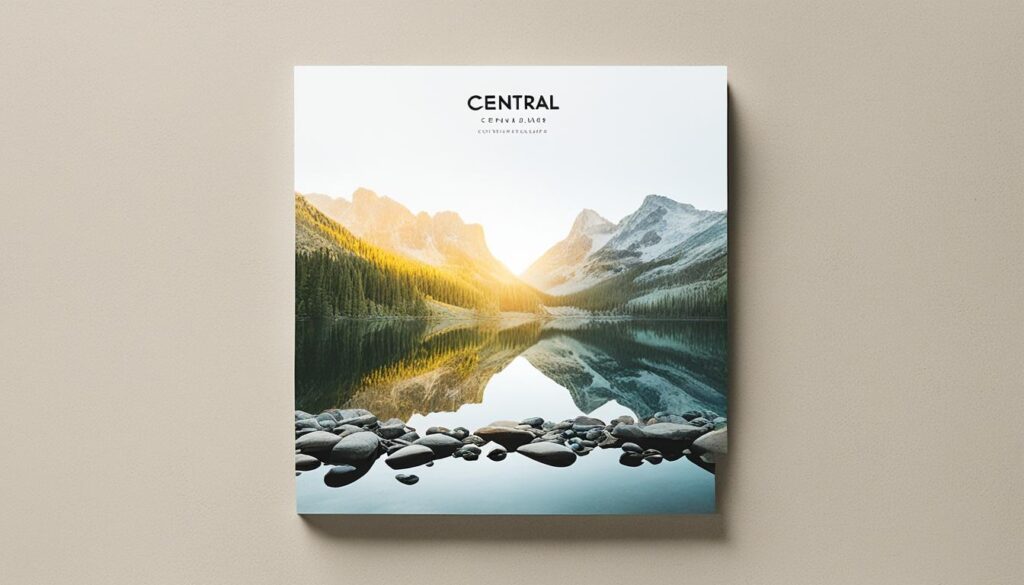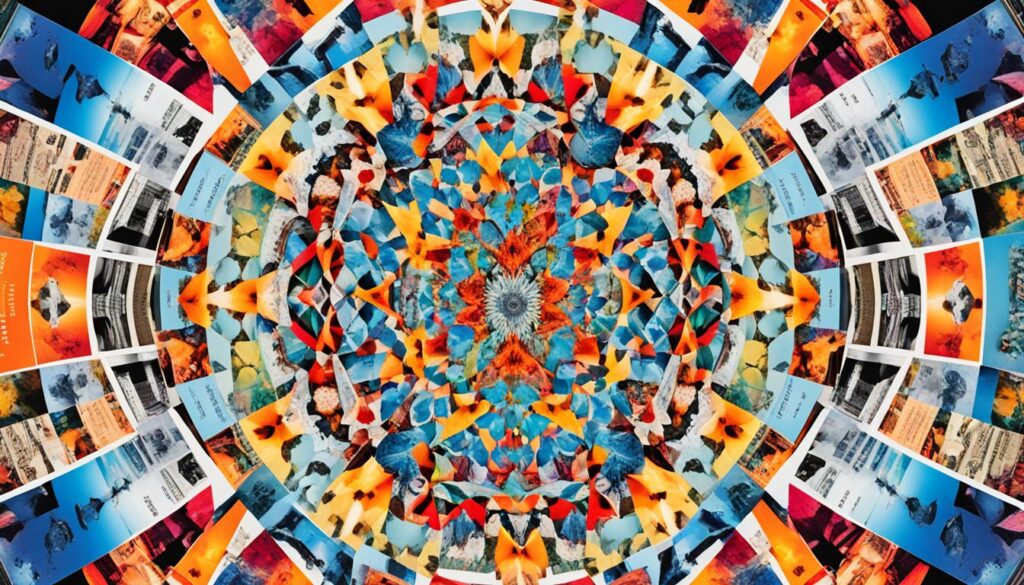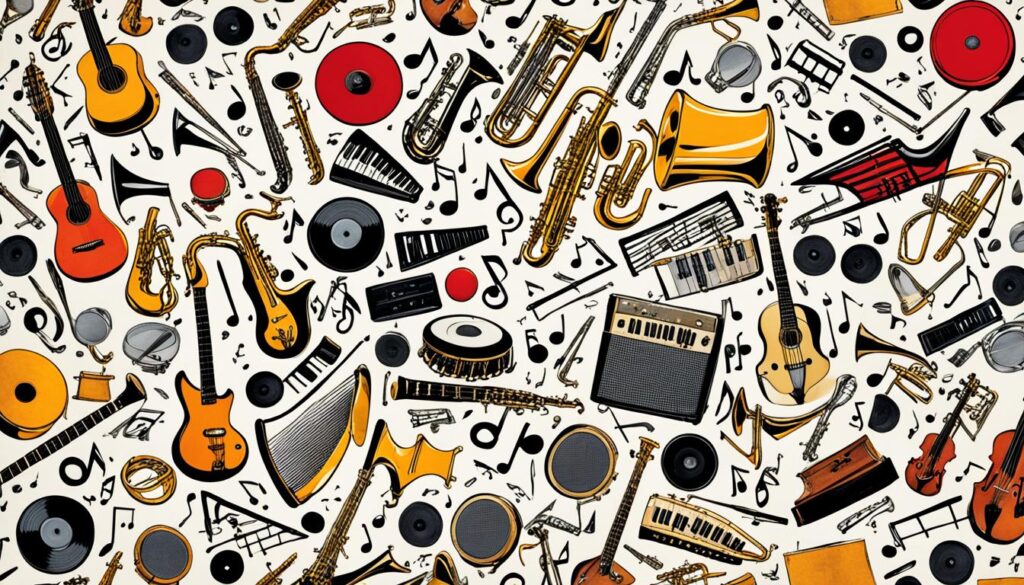Are you a musician looking to create an extraordinary album that goes beyond individual songs and takes your listeners on a captivating journey? Have you ever wondered how to create a musical narrative that tells a unique story and evokes powerful emotions? What if there was a way to create a cohesive and immersive experience for your audience through music? Explore the art of concept albums, where storytelling meets music, and learn how to create your own masterpiece.
Guide To Creating A Concept Album Key Takeaways:
- Concept albums are a unique form of musical expression that combine storytelling with music.
- They revolve around a central theme, narrative structure, cohesive mood, or character study.
- To create a concept album, you need to develop a central theme, plan your narrative structure, and ensure a cohesive stylistic approach.
- Writing music for a concept album requires careful planning and a deep connection to the central theme.
- To effectively market your concept album, consider compelling cover art, engaging with your audience, and collaborating with influencers.
What Makes a Concept Album?
A concept album is a unique form of musical expression that goes beyond traditional albums. It revolves around a central theme, tells a narrative story, exhibits a cohesive stylistic approach, or is tied together by a unifying mood. While there is no standard definition of a concept album, these key elements characterize this extraordinary genre.
Concept albums provide a deeper level of artistic expression and engagement by creating a cohesive and immersive experience for listeners. By exploring various elements, artists can create a musical journey that resonates with their audience on multiple levels.
Let’s explore the defining characteristics of a concept album:
- Central Theme: Concept albums usually revolve around a central theme or idea that serves as the foundation for the entire album. This theme can be broad or specific, but it should be consistent throughout the entire project.
- Narrative Story: Some concept albums tell a narrative story, where each song contributes to the overall plotline. These albums can take listeners on an immersive journey through the power of music and storytelling.
- Cohesive Stylistic Approach: Concept albums often exhibit a cohesive stylistic approach, with songs that seamlessly blend together in terms of musical style, instrumentation, and production. This helps create a sense of unity and coherence throughout the album.
- Unifying Mood: Another characteristic of concept albums is a unifying mood or atmosphere that permeates the entire project. This can be achieved through consistent lyrical themes, melodies, or sonic textures.
An excellent example of a concept album that encompasses all these elements is Pink Floyd’s “The Wall.” This iconic album explores themes of isolation and disillusionment, influencing every song on the album and creating a cohesive and immersive experience for the listeners.
Understanding what makes a concept album is crucial when creating your own musical masterpiece. By incorporating a central theme, narrative storytelling, cohesive stylistic approach, and a unifying mood, you can craft a concept album that captivates your audience and takes them on an unforgettable journey.
Types of Concept Albums
Concept albums come in various forms, each with its unique approach to storytelling and musical cohesion. From albums centered around a central theme to those delving into character studies, here are different types of concept albums that have left a lasting impact on music:
Central Theme Concept Albums: Pink Floyd’s “The Wall”
“The Wall” by Pink Floyd is a prime example of a central theme concept album. It explores themes of isolation and disillusionment, with each song contributing to the overarching narrative.”
Narrative Concept Albums: Kendrick Lamar’s “good kid, m.A.A.d city”
“good kid, m.A.A.d city” by Kendrick Lamar is a narrative concept album that tells a coming-of-age story and reflects on the artist’s experiences growing up in Compton, California.
Cohesive Mood Concept Albums: Frank Sinatra’s “In the Wee Small Hours”
“In the Wee Small Hours” by Frank Sinatra is an example of a cohesive mood concept album. It creates a consistent melancholic atmosphere throughout, evoking feelings of heartbreak and introspection.
Character Study Concept Albums: David Bowie’s “The Rise and Fall of Ziggy Stardust”
“The Rise and Fall of Ziggy Stardust” by David Bowie is a character study concept album that follows the story of Ziggy Stardust, an androgynous rock star navigating fame, love, and societal unrest.
Cohesive Stylistic Approach Concept Albums: Dave Brubeck’s “Time Out”
“Time Out” by Dave Brubeck is a cohesive stylistic approach concept album, exploring complex time signatures and rhythms in a jazz setting.
These examples demonstrate the versatility and creative potential of concept albums, each showcasing a different aspect of conceptual storytelling through music.

| Type of Concept Album | Album | Artist |
|---|---|---|
| Central Theme Concept Album | The Wall | Pink Floyd |
| Narrative Concept Album | good kid, m.A.A.d city | Kendrick Lamar |
| Cohesive Mood Concept Album | In the Wee Small Hours | Frank Sinatra |
| Character Study Concept Album | The Rise and Fall of Ziggy Stardust | David Bowie |
| Cohesive Stylistic Approach Concept Album | Time Out | Dave Brubeck |
How to Write Music for a Concept Album
Writing music for a concept album is a unique and creative process that allows you to weave a narrative and convey emotions through your songs. To create a successful concept album, it is essential to have a clear understanding of the central theme and how it will guide your songwriting. Here are some tips to help you in the music creation process for a concept album:
- Brainstorm and Refine: Start by brainstorming ideas for your concept album and refine them into a central theme. The central theme will be the foundation upon which your songs will be built. It should be something that resonates with you and has the potential to captivate your listeners.
- Develop Characters: If your concept album includes characters, take the time to develop them. Understand their backgrounds, motivations, and experiences. Let their stories shape the lyrics and melodies of your songs.
- Experiment with Musical Styles: Explore different musical styles that align with your concept. This will add depth and variety to your album while still maintaining a cohesive sound.
- Craft Lyrics and Melodies: Write lyrics that evoke the emotions and stories you want to convey within your concept. The lyrics should be meaningful and contribute to the overall narrative of the album. Experiment with melodies that complement the lyrics and create a seamless flow between songs.
- Progression and Cohesion: Ensure that the songs in your concept album progress logically and contribute to the advancement of the narrative. Each track should have a purpose and fit into the overall structure of the album.
By following these concept album songwriting tips, you can create a cohesive and engaging musical journey for your listeners. Let your creativity and connection to the central theme guide your music composition and lyrics, resulting in a concept album that leaves a lasting impact.
Example Concept Album Songwriting Process
| Step | Description |
|---|---|
| 1 | Brainstorm and refine the concept |
| 2 | Develop characters (if applicable) |
| 3 | Experiment with musical styles |
| 4 | Craft lyrics and melodies |
| 5 | Ensure progression and cohesion |
How to Market a Concept Album
Once you’ve created your concept album, it’s time to put your marketing strategies into action to ensure that your work reaches and engages your target audience. Marketing a concept album involves various elements, including album cover design, engaging with your audience, collaborating with influencers, and incorporating live performances into your concept album experience.
1. Compelling Album Cover Design:
Your album cover is the first visual representation of your concept album that potential listeners will see. It needs to be visually captivating and provide a glimpse into the theme or story contained within your music. Consider working with a talented graphic designer to create a compelling and eye-catching album cover that accurately conveys the essence of your concept album.
2. Engage with Your Audience:
Social media platforms provide an excellent tool for engaging with your audience and building a community around your concept album. Share behind-the-scenes glimpses into the making of your record, provide insights into the creative process, and encourage discussions around the central theme of your album. Respond to comments and messages from your fans to foster a sense of connection and involvement.
3. Collaborate with Influencers:
Collaborating with influencers and music bloggers who align with your concept album’s theme or genre can significantly expand your reach and introduce your music to new audiences. Identify influencers who resonate with your concept and have a dedicated fan base, and explore opportunities for collaborations such as guest features, interviews, or social media shoutouts.
4. Live Performances for Concept Albums:
Consider structuring live performances that complement the narrative and theme of your concept album. Incorporate multimedia elements, such as visuals, lighting, and stage design, to create an immersive experience for your audience. Live performances can help bring your concept album to life and enhance the overall impact and emotional connection with your listeners.
By implementing these marketing strategies, you can effectively promote and share your concept album with the world, ensuring that your artistic vision reaches the ears of those who will appreciate and connect with your music.

The Power of Concept Albums in Music
Concept albums possess a unique power in the realm of music, as they transcend individual songs, crafting a cohesive and immersive experience for listeners. These albums allow artists to weave intricate narratives, convey profound emotions, and forge deep connections with their audience. Through the narrative structure, exploration of themes and ideas, and the creation of a memorable musical journey, concept albums possess the ability to captivate listeners and leave a lasting impact.
The impact of concept albums lies in their ability to tell stories that resonate on a profound level. By crafting a narrative arc or theme that runs through the entire album, artists can take their listeners on a transformative journey. Just as a great novel or film can transport us to other worlds and evoke powerful emotions, concept albums have the unique power to transport us through the evocative combinations of music, words, and storytelling.
Moreover, concept albums create an emotional connection between the artist and their audience. By delving deep into the human experience, these albums touch on universal themes and emotions that resonate with listeners. Whether it’s exploring the highs and lows of love, delving into the complexities of the human condition, or delving into social and political issues, concept albums have the power to evoke a wide range of emotions, leaving a lasting impact on the listener.
“Concept albums are like a window into the artist’s soul, allowing us to experience their thoughts, passions, and struggles in a deeply personal way.” – Music Critic
Concept albums are not only about storytelling and emotional connection, but they also push the boundaries of musical creativity. They provide artists with a platform to experiment with different sounds, styles, and arrangements, resulting in a rich and diverse musical landscape. From conceptual masterpieces that blend genres and transcend traditional boundaries to thought-provoking compositions that challenge societal norms, concept albums showcase the boundless possibilities of musical expression.
The impact of concept albums extends beyond the realm of music, influencing other forms of art and entertainment. Films, literature, and theater have drawn inspiration from concept albums, adopting their narrative techniques and thematic explorations. In turn, concept albums have been influenced by these art forms, leading to a symbiotic relationship that fosters creativity and innovation.
The Emotional Journey of a Concept Album
A concept album takes the listener on an emotional journey, guiding them through a series of experiences and emotions. Each song serves a unique purpose, contributing to the overarching story or theme of the album. The album’s structure is carefully crafted to evoke specific emotions and create a seamless flow between tracks.
- Introduction: The concept album begins by setting the stage and introducing the central theme or narrative. This establishes the listener’s expectations and creates intrigue.
- Building Tension: As the album progresses, the tension and intensity increase, drawing the listener deeper into the story. This can be achieved through musical dynamics, lyrical content, and thematic development.
- Climax: The climax of the album is the pivotal moment where emotions reach their peak. This can be a moment of revelation, conflict, or resolution, leaving a lasting impact on the listener.
- Resolution and Reflection: The album concludes by resolving the story or theme and allowing the listener to reflect on the emotional journey they’ve undertaken. This can provide closure, catharsis, or leave room for interpretation.
Table: Emotional Journey of a Concept Album
| Stage | Description |
|---|---|
| Introduction | Sets the stage and introduces the central theme or narrative |
| Building Tension | Increases intensity and draws the listener deeper into the story |
| Climax | Reaches a pivotal moment of revelation, conflict, or resolution |
| Resolution and Reflection | Concludes the story or theme and allows for reflection |
By guiding listeners through this emotional journey, concept albums create a powerful and lasting impact. They engage the mind, ignite the imagination, and evoke a range of emotions, forging a deep connection between the artist and their audience.
Concept Album Examples in Different Genres
Concept albums have proven to be a versatile artistic approach, transcending various musical genres. Let’s explore some notable concept albums that exemplify the creativity and depth found within rock, hip-hop, and jazz.
Rock Concept Albums:
One iconic rock concept album is “The Wall” by Pink Floyd. Released in 1979, this album tells a compelling story of isolation and disillusionment through its powerful lyrics and atmospheric melodies.
Hip-Hop Concept Albums:
Kendrick Lamar’s “good kid, m.A.A.d city” is a standout example of a hip-hop concept album. Released in 2012, this album takes listeners on a captivating journey through Lamar’s experiences growing up in Compton, California.
Jazz Concept Albums:
“Time Out” by Dave Brubeck is a renowned jazz concept album. Released in 1959, this album defied traditional jazz norms by experimenting with unconventional time signatures, showcasing Brubeck’s innovative approach to music.
These concept album examples illustrate how artists in different genres can embrace the concept album format to create cohesive and engaging musical narratives. Now, let’s delve deeper into the process of creating your unique concept album.

| Genre | Concept Album | Release Year |
|---|---|---|
| Rock | The Wall | 1979 |
| Hip-Hop | good kid, m.A.A.d city | 2012 |
| Jazz | Time Out | 1959 |
Creating Your Unique Concept Album
When it comes to creating a concept album, the key is to think outside the box and explore new themes and ideas that resonate with you as an artist. This is your opportunity to push the boundaries of traditional concept albums and let your creativity shine. Don’t be afraid to draw inspiration from diverse sources such as literature, films, personal experiences, or social issues. By infusing your unique perspective and creativity into your concept album, you have the power to create something truly original and captivating for your listeners.
It’s essential to dive deep into your chosen theme and develop a cohesive narrative that connects all the songs on your album. Whether you’re exploring a specific emotion, tackling a social issue, or telling a story, make sure there’s a clear thread that ties everything together.
Consider the following strategies to help you create an original and impactful concept album:
- Take inspiration from literature and films: Explore classic novels, poetry, or movies that resonate with your chosen theme. Use these narratives as a starting point and adapt them into your own musical story.
- Draw from personal experiences: Your own life experiences can be a rich source of inspiration for your concept album. Reflect on significant moments, challenges, or emotions you’ve encountered and find ways to express them through your music.
- Explore social issues: Concept albums can be a powerful medium to shed light on important social issues. Use your music to address topics that are close to your heart and spark conversations that matter.
- Experiment with different musical styles: Don’t restrict yourself to a specific genre. Explore different musical styles and experiment with diverse sounds and rhythms that complement your concept and add depth to your album.
- Collaborate with other artists: Consider collaborating with other musicians, songwriters, or producers who share your vision. Their unique skills and perspectives can bring new dimensions to your concept album and elevate its impact.
Remember, the key to creating a unique concept album is to let your imagination run wild and embrace your artistic vision. Don’t be afraid to take risks and push the boundaries of what’s been done before. By exploring new themes, drawing inspiration from various sources, and infusing your creativity into every aspect of your album, you can create a concept album that is truly one-of-a-kind.
Collaboration and Professional Support for Concept Albums
Creating a concept album is a collaborative process that can greatly benefit from the input of other musicians and professionals. By collaborating with individuals who understand and embrace your concept, you can bring new perspectives and ideas to your project, elevating the quality and impact of your concept album.
When selecting musicians to collaborate with, look for individuals who not only possess exceptional musical skills but also have a deep understanding of your concept. Their contributions can help bring your vision to life in unexpected and innovative ways, enriching the overall musical experience.
In addition to collaborating with musicians, working with a producer or recording engineer who specializes in concept albums can be invaluable. A skilled producer can help you refine your ideas, enhance the cohesion of your album, and ensure that your vision is effectively translated into the final recording.
Through their expertise and experience, a concept album producer can assist you in various aspects of the production process, including:
- Concept development and refinement
- Arrangement and instrumentation
- Recording techniques
- Sonic experimentation
- Mixing and mastering
Working closely with a producer can bring out the best in your concept album, allowing you to fully realize your artistic vision and deliver a cohesive and impactful musical journey to your listeners.
Benefits of Collaboration and Professional Support for Concept Albums
Collaborating with musicians and professionals offers various benefits for the creation and production of a concept album:
“Collaboration can push the boundaries of your creativity, challenge your own ideas, and lead to unexpected artistic breakthroughs.”
By working with others, you can tap into different perspectives, harness collective creativity, and explore new sonic possibilities. This collaborative process fosters a supportive environment that encourages experimentation, leading to innovative and compelling musical outcomes.
Furthermore, collaborating with professionals who have expertise in concept album production and recording can help you navigate the technical aspects of the process. Their guidance can ensure that your concept album is recorded, mixed, and mastered with the utmost quality, allowing your artistic vision to shine through.
| Key Benefits of Collaboration and Professional Support for Concept Albums |
|---|
| Access to diverse perspectives and ideas |
| Enhancement of the overall quality and impact of the concept album |
| Guidance from professionals specializing in concept album production |
| Refinement of the concept and artistic vision |
| Technical expertise for recording, mixing, and mastering |
The Future of Concept Albums
In the digital age, concept albums are experiencing a renaissance as they continue to evolve and adapt to new platforms and listening habits. With the rise of streaming platforms, concept albums now have the opportunity to reach a wider audience and create immersive experiences through the integration of visual and audio elements. This evolution signifies the dynamic nature of concept albums in the ever-changing music industry.
In the past, concept albums were primarily consumed through traditional means such as vinyl records, CDs, and cassette tapes. However, streaming platforms have revolutionized the way we consume and interact with music. These platforms offer a convenient and accessible way for listeners to engage with concept albums at their convenience, whether it’s on their smartphones, tablets, or computers.
Streaming platforms have also enabled artists to enhance the immersive experience of concept albums by incorporating visual elements. From album cover art to music videos and lyric videos, artists can now convey their concept more effectively and create a more engaging and memorable experience for listeners.
Furthermore, streaming platforms provide valuable data and insights that artists and record labels can utilize to understand their audience better. This data can inform future concept album projects and help artists tailor their music to meet the evolving preferences and tastes of their listeners.
Concept albums in streaming platforms
Streaming platforms have become the go-to destination for music lovers worldwide, offering an extensive catalog of concept albums across various genres. Listeners can explore concept albums from rock, hip-hop, jazz, and other musical styles, providing a rich and diverse range of storytelling and artistic expression.
Moreover, streaming platforms have paved the way for concept albums to gain recognition and reach a wider audience. The curated playlists, personalized recommendations, and algorithmic features of streaming platforms help introduce concept albums to listeners who may not have discovered them otherwise. This increased accessibility and exposure contribute to the growth and popularity of concept albums in the digital age.
Concept album evolution
As technology continues to advance, concept albums have the potential to push the boundaries even further. Artists can experiment with interactive elements, virtual reality experiences, and immersive audio technologies to create multisensory journeys for their listeners. These advancements may unlock new ways to engage with concept albums, blurring the lines between music, storytelling, and visual art.
Furthermore, concept albums can continue to evolve by incorporating collaborations with other artists, filmmakers, and multimedia creators. By merging different art forms and disciplines, concept albums can transcend traditional boundaries and offer innovative and immersive experiences that captivate and inspire audiences.
In summary, the future of concept albums looks promising as they continue to adapt and thrive in the digital age. Through streaming platforms and technological advancements, concept albums have the potential to revolutionize the way we experience music and storytelling, creating unforgettable and transformative listening experiences.
Conclusion
Concept albums have proven to be a powerful and immersive form of musical expression, allowing artists to create cohesive and captivating narratives. By understanding the elements that make a concept album, exploring different types of concept albums, and following the process of creating and marketing a concept album, you can unlock the potential to tell stories and connect with your audience on a deeper level. Embrace your creativity, think outside the box, and embark on the journey of creating your own concept album.
Concept albums offer a unique opportunity to go beyond individual songs and take listeners on a transformative musical experience. The central theme, narrative structure, cohesive stylistic approach, and emotional connection make concept albums a compelling and memorable art form. Whether you want to explore personal experiences, societal issues, or abstract concepts, concept albums provide a platform to express your creativity and deliver a message through music.
As you delve into the world of concept albums, remember that originality and authenticity are key. Don’t be afraid to experiment with different themes, musical styles, and storytelling techniques. Let your concept guide your songwriting process and allow your listeners to immerse themselves in your artistic vision. Whether you are a seasoned musician or just starting out, the concept album format offers endless possibilities for self-expression and connection with your audience.
FAQ
What is a concept album?
What are the different types of concept albums?
How do I write music for a concept album?
How do I effectively market my concept album?
What makes concept albums unique in the world of music?
Can concept albums be created in different genres?
How can I create a unique concept album?
Should I collaborate with other musicians and professionals when creating a concept album?
How do concept albums adapt to the digital age?
What is the impact of concept albums in music?
Are there any notable concept albums in different genres?
Source Links
- https://americansongwriter.com/how-to-write-a-concept-album-susan-werner-songwriter-u/
- https://blog.discmakers.com/2023/08/what-is-a-concept-album/
- https://www.thesoundjunky.com/how-to-write-a-concept-album/
-
17 Best Songwriting Courses Online By Famous Artists

Songwriting Course Online – Learn From Ryan Tedder, Charlie Puth, Alicia Keys, Saint Vincent, Louis Bell, Kygo, Armin Van Buuren, Timberland, & More.
-
Using Music Theory To Spark Creativity

Unleash Your Creativity With Music Theory! Discover How Understanding Harmony, Melody, And Rhythm Can Turn A Simple Tune Into An Unforgettable Anthem.
-
Lack Of Inspiration For Songwriting – Tips You Will Love

Staring At Your Instrument With No Inspiration? You’re Not Alone. Even Legendary Songwriters Face Creative Dry Spells. Discover Tips To Overcome And Reignite Your Spark.
-
AI Curated Songwriting Resources You Will Love

Discover How AI Is Revolutionizing Songwriting! From Generating Melodies and Lyrics to Assisting with Arrangements, Explore the Tools and Ethical Considerations of AI-Driven Music Creation

Leave a Reply